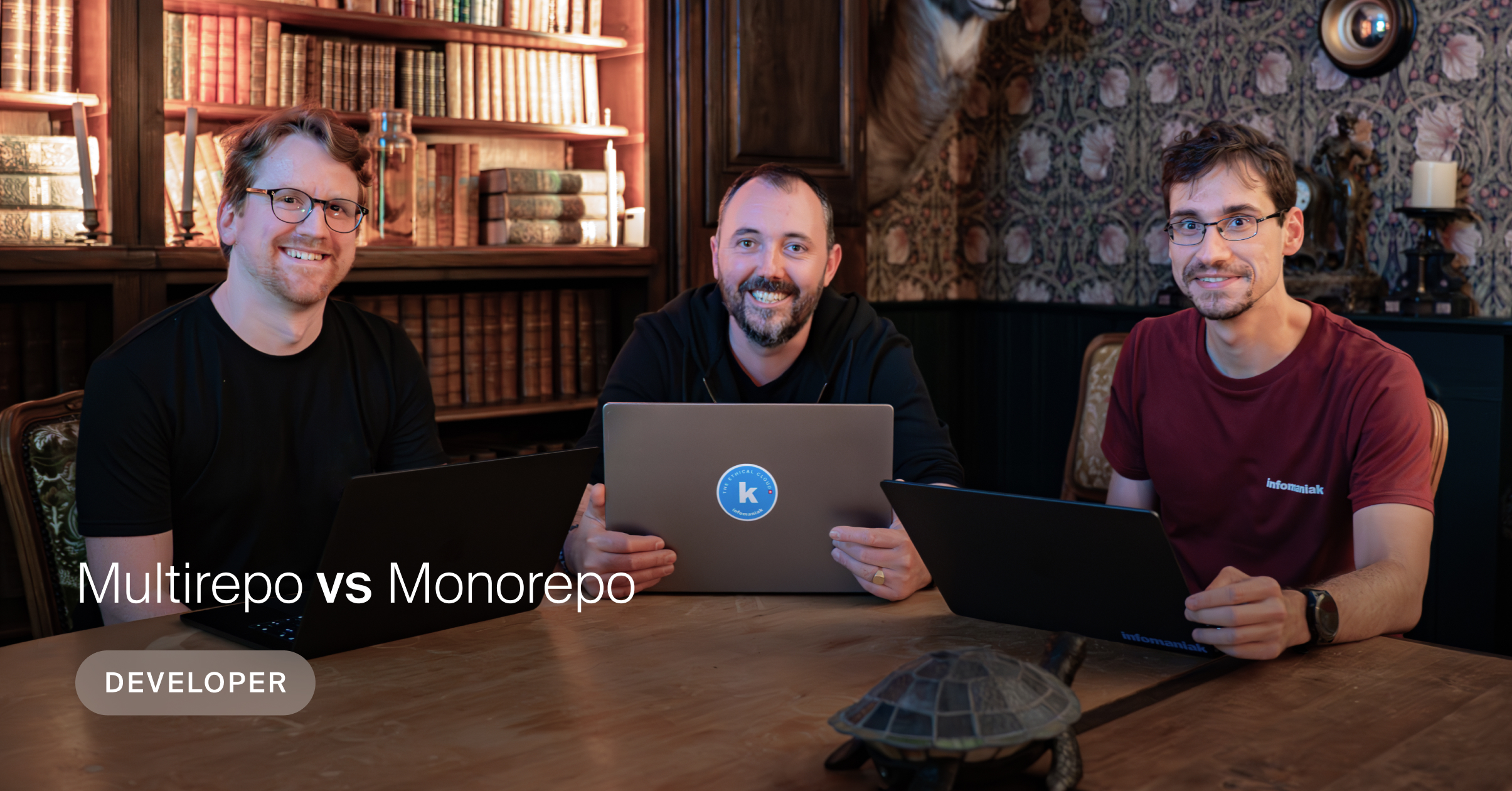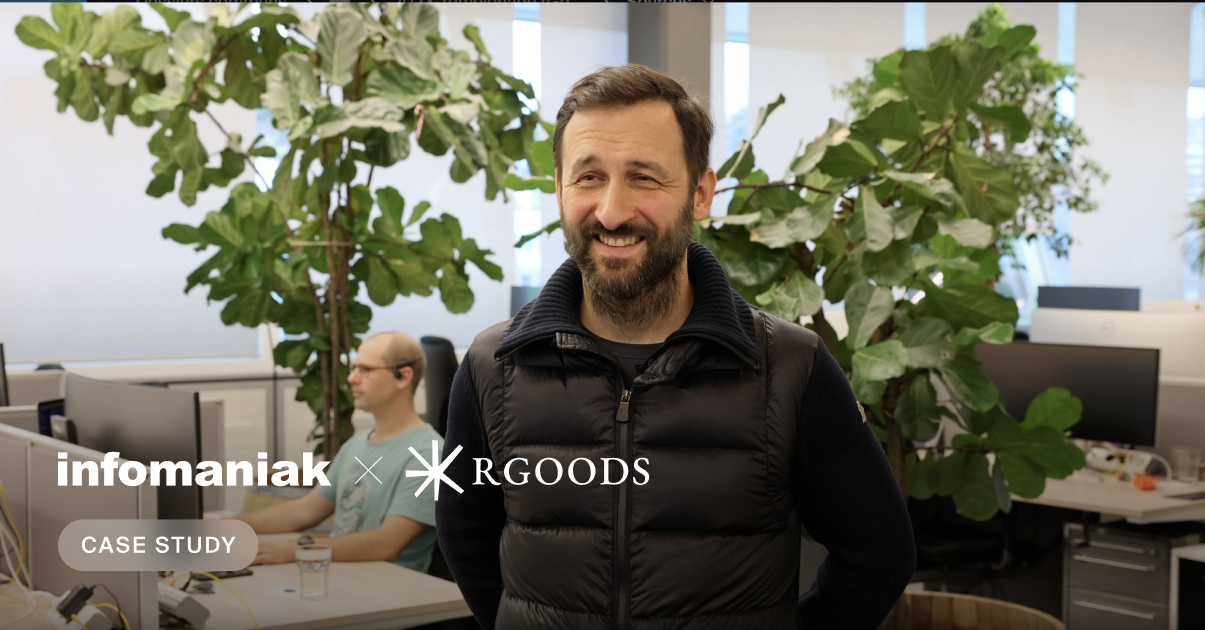Infomaniak puts two solar power plants into production with a total capacity of 420 kWp. Manufactured in Germany by Meyer Burger using renewable energy, the 1,085 panels installed provide for 55% of the electricity requirements of a data center with an output of approximately 700 kW – when sunlight conditions are at their best. This year, we will be rolling out a third 364-panel power plant with the aim of producing 50% of our total annual electricity consumption by 2030.
Towards a sovereign and more energy-self-sufficient cloud
We want to roll out a new solar power plant each year in order to self-produce 50% of the electricity needed to cover our annual consumption by 2030. It is important to diversify the renewable energy mix to make smarter use of hydropower. Solar energy can be used to lift water from rivers in order to store it and then turbine it again to produce electricity at night or when the weather is bad. Glacier water is valuable and should be used as a battery instead of being consumed just once.
Boris Siegenthaler, Infomaniak’s founder and Head of Strategy

When the sun is shining brightly and directly on the panels, the production plants temporarily cover 55% of Infomaniak’s electricity needs in 2023. Over the year, in real conditions, these two plants will produce 6 to 7% of the electricity used.
|
Number of high-efficiency panels |
Installed power (kWp) |
Energy produced per year (kWh) |
|
|
Two power stations in operation |
1,085 |
420 |
400,000 |
|
Another plant planned for 2024 |
364 |
130 |
120,000 |
The solar energy produced by Infomaniak is consumed instantaneously, without using the grid. In this way, Infomaniak is contributing to the objectives of the Energy Strategy 2050 of the Swiss Federal Office of Energy (SFOE), which aims in particular to develop renewable energies in Switzerland.[1]
Claude Cornaz, Director at SwissElectricity
Low-carbon solar panels made in Europe

Developed in Switzerland and manufactured in Germany by Meyer Burger, Infomaniak’s solar panels have a carbon impact of 478 kg CO2eq/kWp compared to 750 kg CO2eq for equivalent modules manufactured in Asia[2]. This 36.27% improvement in terms of the carbon footprint is mainly due to short transport distances, plants powered exclusively by renewable energy and a local supply chain[3].. The photovoltaic inverters for the plants are also manufactured in Germany by the SMA Group.
Generating solar energy at our latitudes with Asian solar modules now makes no sense in terms of output and their carbon impact. It should be borne in mind that their importation and manufacture require the extraction of mineral resources, hence the importance of favouring local manufacturers who minimise their impact.
Boris Siegenthaler
The Meyer Burger plant is located in southern Germany, is completely lead-free, uses fewer solvents, contributes to the economic development of the region and guarantees stable yields and a module performance of 92% after 25 years. In addition, the Hetero Junction Technology cells perfected by Meyer Burger allow more solar energy to be absorbed than conventional cells, so that more electricity can be produced in cloudy weather.
Creating sustainable digital technology for the planet
Since 2007, we have gradually been implementing measurable actions to reduce our CO2 emissions, electricity consumption and environmental impact:
- 100% renewable energy purchased.
- Incentive for soft mobility with an annual bonus.
- CO2 emissions doubly offset (100% in Switzerland, 100% abroad).
- Extension of the service life of servers up to 15 years.
- Development of data centers cooled without air conditioning with an energy performance index (PUE) below 1.1 (European average: 1.8).
- Development of a new type of data center that fully recycles the energy used in order to heat households.
- Purchase of components manufactured as locally as possible.
- Continuous improvement of the company’s environmental impact and energy performance with ISO 14001 and ISO 50001 standards.
More
- Discover Infomaniak, The Ethical Cloud
- Discover Infomaniak’s environmental commitments
- See Infomaniak’s 2022 greenhouse gas emissions report
***
[1] https://www.uvek.admin.ch/uvek/en/home/energy/energy-policy.html
[2] https://www.ise.fraunhofer.de/content/dam/ise/de/documents/publications/conference-paper/wcpec-8/Reichel_5DV234.pdf
[3] https://www.meyerburger.com/en/sustainability
Case study: RGOODS develops international NGO shops using Infomaniak’s cloud solutions
Thursday March 28th, 2024
From UIKit to SwiftUI: developing an iOS mobile app with the latest Apple framework
Monday March 25th, 2024

 Français
Français Deutsch
Deutsch Italiano
Italiano Español
Español





You must be logged in to post a comment.